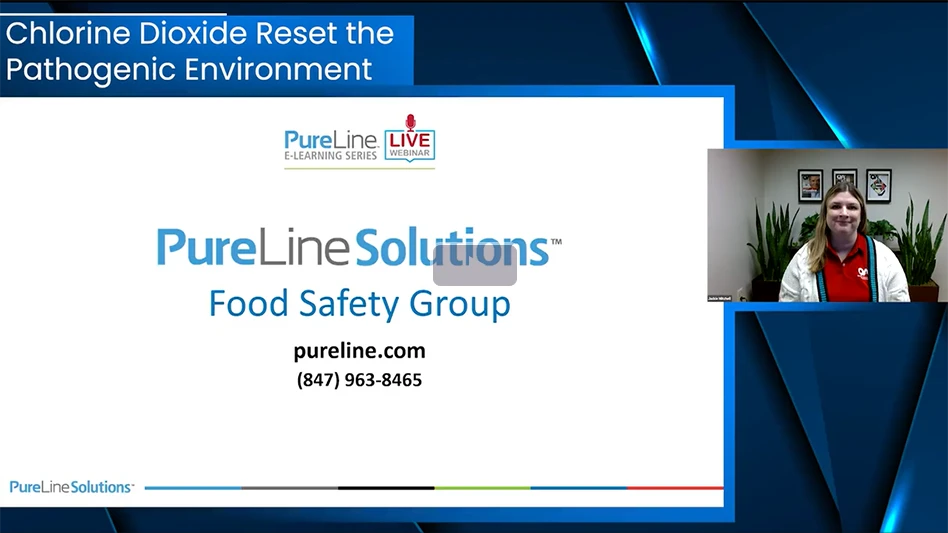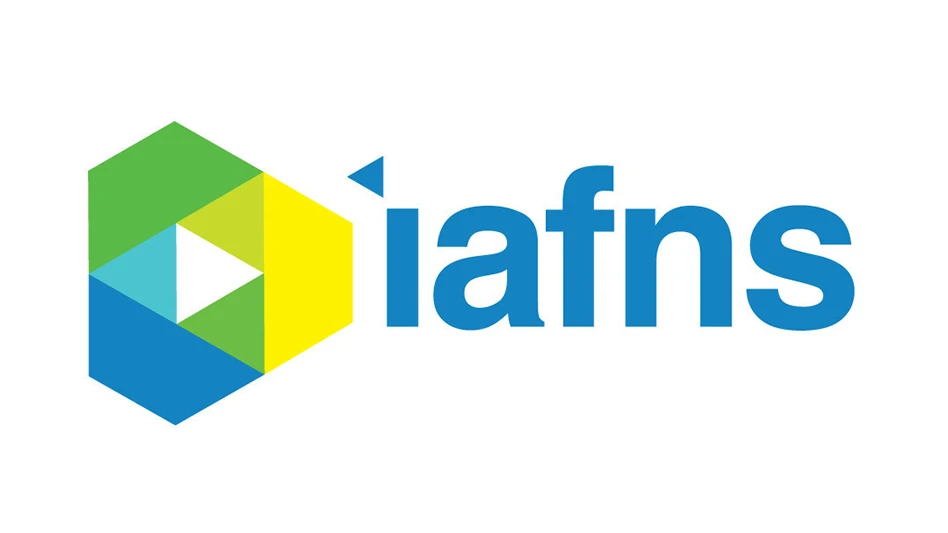
By Lisa Lupo
Industry: A Range of Readiness

SMALL COMPANIES. FSMA has so many moving parts right now. The law places different demands on the industry in different ways. It is different for importers, distributors, retailers, manufacturers, etc. What I am observing is somewhat of a mix between confusion, denial, fright, disinterest, and so on. To some it is “out there”; it does not seem to have real meaning because it is not today. And many are saying that they need time to get “things in order” within their company or with their customers. There also is some confusion between what is labeled as a very small company (below $1 million) vs. small (which is over 500 employees). Even that is not very clear and, therefore, their timelines (and pressure to be in compliance) are not in full swing. It feels like everyone is just waiting to see what the real law will be. But the law is there, we just need to get into it now. (Shawn McBride, vice president, Foah International, and past chair, Specialty Foods Association)

SUPPLIER READINESS. My general perspective on industry implementation is that a good portion is ready. They’ve been working on FSMA for a while and have strong, well-documented programs. Another portion is “just getting ready” — they are just getting their staff trained; they are not ready but they are working to get ready. Then there is the third group of suppliers that hasn’t started or is still “evaluating” (one supplier’s words). These are very concerning. It seems that the larger the organization the most prepared they are. But, as a result, FSMA compliance might have the unintended impact of driving many small and medium/“local” suppliers out of the market and increase costs, as business in some sectors goes to a smaller number of suppliers. (Jorge Hernandez, chief food safety officer, Wholesome International)

A RANGE OF READINESS. With my opportunity to work with a variety of firms, I would say there is a wide range of readiness toward FSMA compliance. Most of the larger companies, with greater depth of resources, are much further along toward FSMA compliance, in general, than the medium and smaller firms. FDA was wise to delay the effective dates for the small and very small firms to September 2017 and September 2018, respectively. This will provide the much-needed time for implementation for these firms to become fully compliant. (Bradd Eldridge, president, Quality Management Partners)
Companies: Where they are now.
PREREQUISITES TO PCs.(Prior to his new position with HP Hood, Bruce Ferree was the compliance manager at a natural aseptic plant.) I was working at a plant that was considered to be a “small” processor, so we had until October 2017 to implement. Our efforts there were to update the HACCP Plan to include all the elements needed under FSMA and to reformat it into a risk analysis instead of a hazard analysis. Based on the outcomes from the new risk analysis, we were beginning to update our prerequisite programs to be preventive controls. This was really just to update the name of the program and to add the elements of HACCP (monitoring, documentation, corrective action, etc., as required by FSMA) into the programs. Then there was training of the new program to staff and implementation. (Bruce Ferree, senior QA manager, HP Hood)

IMPORTATION REGULATION. We are looking hard at the importation regulations that fall under FSMA. We have to work with international producers because there are pretty strict regulations on imports. However, this does not have an impact on the main producers here in the U.S. unless they are importing individual ingredients or finished products for use in their products or are selling/distributing imported products.
Additionally, our Specialty Food Association is educating members and trying to get them to be more conscientious about recalls, traceability, supply chains, and proper and complete documentation in all areas. Believe it or not, some are not even keeping proper records that they can fall back on in 2018. (McBride)
IMPLEMENTING THE RULES. In our processing facility, we not only implemented most of the Preventive Controls (PC) requirements, we also are working with our distributors to address the Sanitary Food Transportation Act (SFTA) ahead of the deadline. We also are working on the Produce Safety, Foreign Supplier, and Food Defense rules as they pertain to our business. However, to be honest, we are having a hard time with PC and SFTA. On the PC side, many of our suppliers are behind with their FSMA programs and documentation — some of them significantly. On the SFTA side, we are running into serious resistance from some distributors. As a result, we are looking for alternate products, suppliers, and distributors (just in case the current ones don’t improve), but are having a hard time finding suppliers with strong programs and documentation. (Hernandez)
LARGE COMPANIES. Validating the general thinking that larger companies are more prepared, one large firm who asked to not be identified stated that it is well-positioned in FSMA compliance. It has sent individuals to Qualified Individual training and completed Food Safety Plans for its North American businesses. It has conducted cross-functional training and informed its organization through its Intranet. As draft guidance documents continue to be published, they are reviewed by its internal FSMA Task Force which meets monthly. The company is actively involved in Grocery Manufacturers Association (GMA) FSMA Working Groups, participated in a 2016 Inspection Pilot Study, and volunteered for the first round of FDA-Preventive Controls for Human Food inspections as an educational endeavor for both GMA members and FDA inspectors.
Additionally, some of the requirements for documents accompanying shipments may be burdensome (such as Disclosure Statements), so the company is staying closely aligned with the GMA members on this. It will continue to work with foreign suppliers to the U.S. to ensure the basic requirements of the Foreign Supplier Verification Program are in place by the 2017 deadline. It has covered the incremental work through the use of existing resources and will likely need to bring a certified process authority into its process engineering group to provide the necessary expertise and focus for its current and future validation work. The company is working with the global supply chain on this.
What’s Next: What should be on facilities’ agendas in 2017?
Some of the things that need to be on facilities’ 2017 plans are to be looking at the new transportation rule and the food defense rule to ensure those get implemented. In addition, FDA changed the Nutrition Facts layout and expectations, and that will surely start showing up on peoples’ radar to work on. (Ferree)
FSMA’s PCs. Setting up programs to meet the PC FSMA requirements is, in my opinion, just the start. The next phase is to get the organization in the discipline to regularly review the risk assessment and verification as well as the data generated by the program — and take action. Then, of course, we have the Sanitary Transportation, Produce Safety, Foreign Supplier, and Food Defense rules. So, a lot more for the next few years. (Hernandez)
FOOD SAFETY PROGRAMS. What is always important with an ingredient and/or food manufacturing facility is effective and robust prerequisite programs, such as allergen, sanitation, and supplier programs, to name a few. It is prudent for firms to assure these programs are known by the employees and effectively implemented and executed. Another program facilities must have in place is a good environmental monitoring program. Firms can expect FDA to take environmental samples during their inspections, therefore it is in their best interest to have a full understanding of where the facility might be vulnerable for positive environmental test results and have a mitigation strategy in place should such results be identified. Again, robust prerequisite programs should minimize any negative events from periodically popping up and will enable the firm to confidently make safe food products and remain in compliance with the FDA regulations. (Eldridge)
THE NEW ADMINISTRATION. There is interest to see if the new administration will change any of the regulations, especially to help small businesses. Personally, I do not think the administration will bother much with FSMA (at least in the beginning) because it has much bigger fish to fry. However, who knows what will be reviewed as it goes through the different governmental departments. I think that the administration will analyze where there is waste or a need for change. Will it affect the food industry? Who knows. Certainly, it could, if its get down into the nitty gritty of the law. I think that the administration has so much on its plate, it will not concentrate on this right now. Maybe it could use help from all of us.
I think that many companies (small and middle sized) do not have proper staffing to handle the implementation and, thus, they will be looking to outside consultants to assist them and get them up to date to be in compliance. There is a definite cost factor no matter which way they go.
I keep going back to the need for a very basic timeline that essentially gets splashed everywhere all the time. What one company sees one time, another misses, and vice versa. It seems like it is so repetitive, but that is because people often do not pay attention to things the first, second, or third time around. (McBride)
FSMA GUIDANCE. The large company stated that it expects FDA to continue to roll out draft guidance documents for at least nine other elements of the Preventive Controls for Human Food Rule in 2017. However, it does not expect broad inspection and enforcement activities until later in 2017 (after the issue and comment period for draft guidance). However, FDA could show up any time as before. FDA also has expanded access to records under FSMA, and environmental monitoring programs will be a point of focus.
PEST MANAGEMENT. Food facilities will need to work at a higher level of involvement and discussion with their pest management partners to ensure they are taking steps to address FSMA. Ideally, pest management providers should be involved in all relevant aspects of the business with the key to success being a commitment to partnership. First, work together to determine how to prevent the issue from gaining a foothold. Then determine the responsibilities for each party to resolve the issue in a timely manner if prevention efforts are unsuccessful and the issue does emerge. FSMA is very specific in the way it ties the cGMP and the FD&C Act together, with clear consequences if its requirements are not met.
The pest control section of the Food Code (21CFR 117.35[c]) states that pests must not be allowed in any area of a food plant. Effective measures must be taken to exclude pests from the manufacturing, processing, packing, and holding areas, and to protect against the contamination of food on the premises by pests. This is a very serious statement as it is virtually impossible to have “no pests” inside a manufacturing or storage facility at all times. Just one propped door on one occasion and you’re already out of compliance.
This is where partnerships really become important. The pest management vendor needs to highlight conditions that are tied to, or could become an active infestation for, the client. The client needs to work with the vendor to resolve the issue and document what was done, in detail, and when. This might include sanitation, behavioral or structural conditions and corresponding corrective actions.
FSMA has enhanced FDA’s authority to administratively detain food that it has “a reason to believe” may be adulterated or misbranded. FSMA will hold the food and pest management industries to a higher standard. The key to the success of the pest management program will be the effectiveness and collaboration of the client/vendor partnership. (for Copesan, Dominique Sauvage, director of field operations and quality)
GFSI. At the Novemeber 2016 GFSI Briefings in Washington, D.C., industry and government leaders discussed the alignment between GFSI and FSMA, highlighting the potential to better leverage GFSI for FSMA implementation, international business, and enhanced food safety for consumers everywhere. While GFSI tools should be seen as complementary to regulatory oversight, not as a substitute for it, there are opportunities for regulators to work with industry and leverage initiatives such as that of GFSI. For example, a Canadian Food Inspection Agency (CFIA) official said that its Private Certification Policy acknowledges that third-party certification schemes, such as those recognized by GFSI, can help food facilities meet or exceed regulatory food safety requirements and enables the CFIA to use the results of private certification to inform its risk-based inspection activities.
As relates to FSMA, David Acheson, CEO and founder of The Acheson Group and former FDA associate commissioner for foods, discussed a comparative analysis of the GFSI Benchmarking Requirements V7 with FSMA’s PC rule, stating, “GFSI generally meets or exceeds all of the requirements in the FSMA preventative control rule....In some cases, GFSI has requirements not reflected in FSMA.”
As such, he said, “Having a GFSI certification will put facilities in a good place for FSMA compliance. No doubt about it. The bottom line is that, when implemented, both GFSI and FSMA will protect the food supply to the same extent.” (provided by Neil Marshall, global director of quality and food safety, The Coca-Cola Company and GFSI board member.)
The author is editor of QA magazine. She can be reached at llupo@gie.net.

Explore the February 2017 Issue
Check out more from this issue and find your next story to read.
Latest from Quality Assurance & Food Safety
- Pet Food Company Implements Weavix Radio System for Manufacturing Communication
- Penn State Offers Short Course on Food Safety and Sanitation for Manufacturers
- USDA Announces New Presidential Appointments
- FDA to Phase Out Petroleum-Based Synthetic Dyes in Food
- IFT DC Section to Host Food Policy Event Featuring FDA, USDA Leaders
- CSQ Invites Public Comments on Improved Cannabis Safety, Quality Standards
- Registration Open for IAFNS’ Fifth Annual Summer Science Symposium
- Leaked White House Budget Draft Proposes Shifting Inspection Responsibilities from FDA to States





